The onion is for more than just cooking! From natural remedies to the Egyptian Pharaohs, let’s unpeel the layers with these fun facts about onions!
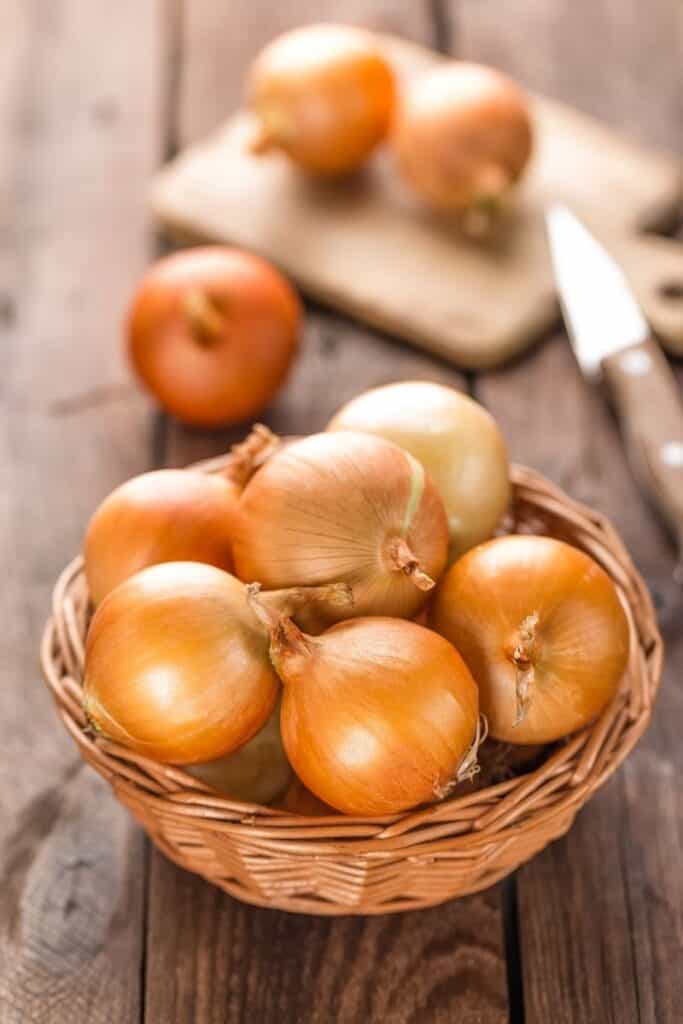
Oh, the humble onion! This global staple is so common that it just blends into the background, doesn’t it?
Onions are eaten in every country in the world. They are added to pretty much every dish we eat, and they are one of the most common crops planted today.
Believe it or not, the onion has been around for thousands of years. Early humans were eating it wild before we ever dreamed of planting and cultivating it.
And the onion is not just for eating. Onions have many interesting uses (just wait until you see fact no. 12!) Keep reading for some surprising fun facts about onions that will really surprise you.
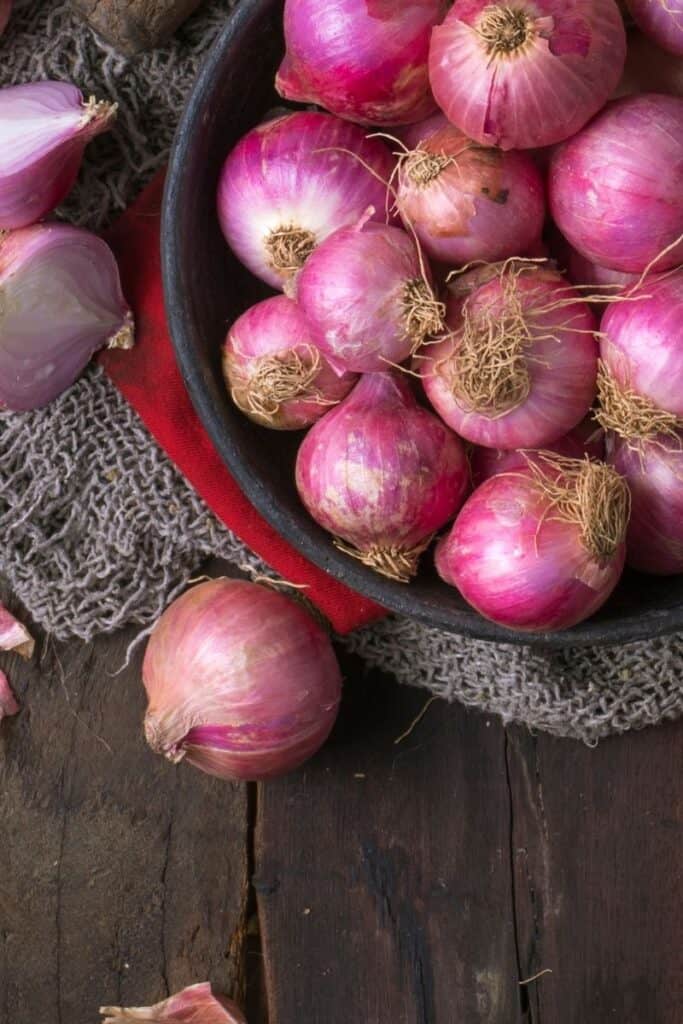
Onions are just so versatile. They are delicious fried. They can be caramelized. They can be added to dishes to add depth of flavor. They are inexpensive and hearty. The fascinating world of the onion does not stop there!
Did you know you can clean a barbecue grill with an onion? Or can grow your hair back? They can also boost your libido! Have we mentioned that we love onions yet? We may have to make I ♡ Onions t-shirts!
With these onion facts we’ll learn about all of the onion’s superpowers. Okay, are you ready? Let’s discover more about the fabulous onion!
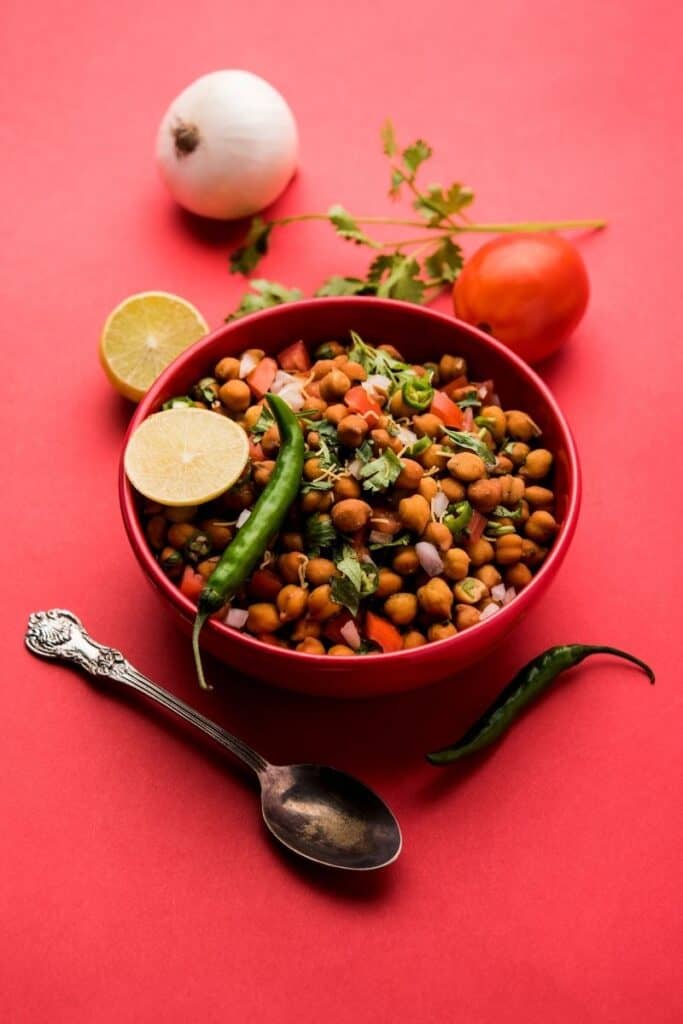
Contents:
16 Fun Facts About Onions
1. Even cavemen ate onions!
That’s right, our prehistoric ancestors were eating onions long before farming was even invented. They were a staple of the prehistoric diet.
Wild onions grew throughout the world, and while on the hunt for meat, early humans munched on the delicious roots along their journey. Young, raw onions were the preferred snack, so we’re pretty sure they hadn’t invented onion rings at that point.
2. One of the first cultivated crops
It is disputed where onions were first planted and cultivated. Some say Central Asia and others say the Middle East. What we do know is that the cultivation of onions dates back to over 5,000 years ago!
The onion crop was valuable for many reasons. It was easy to grow, easy to transport, and easy to preserve. Onions are very adaptable and can be grown in many different soils and climates.
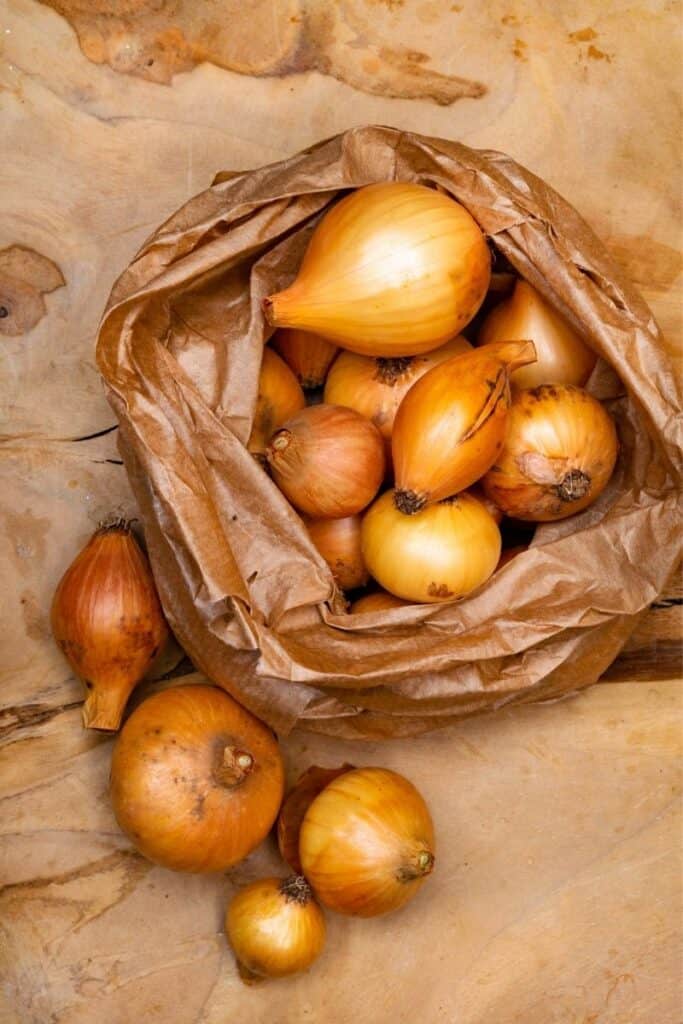
3. Sacred to the Egyptians
Okay, now this is one of the coolest onion facts. The onion in ancient Egypt was an object of worship. It was seen as a symbol of eternal life because of its many circular layers.
Egyptian art and hieroglyphics often feature the onion as having healing and restorative powers. The onion was so revered that the pharaoh Ramses IV was entombed with onions shoved in his eye sockets!
4. Onions and the Olympics
During the ancient Olympic games in Greece, the onion was used extensively to prepare athletes for the grueling athletic competition.
Athletes would consume pounds of onions leading up the Games. They also drank onion juice and rubbed onions on their bodies in an effort to warm up their muscles.
Believe it or not, ancient Greek physician Pedanius Dioscorides was onto something. Onions today are known for their powers to increase circulation to the body.
5. Is the onion a superfood?
The health benefits of onions are more understood today and there are numerous benefits to keeping them in your diet.
First off, they are low calorie, low carbohydrate and fat-free. But more impressively, onions are rich in antioxidants, including the flavonoid quercetin which is known to aid heart health.
Other health benefits? Onions promote bone health, improve skin conditions and reduce blood sugar. Maybe it should be an onion a day keeps the doctor away!
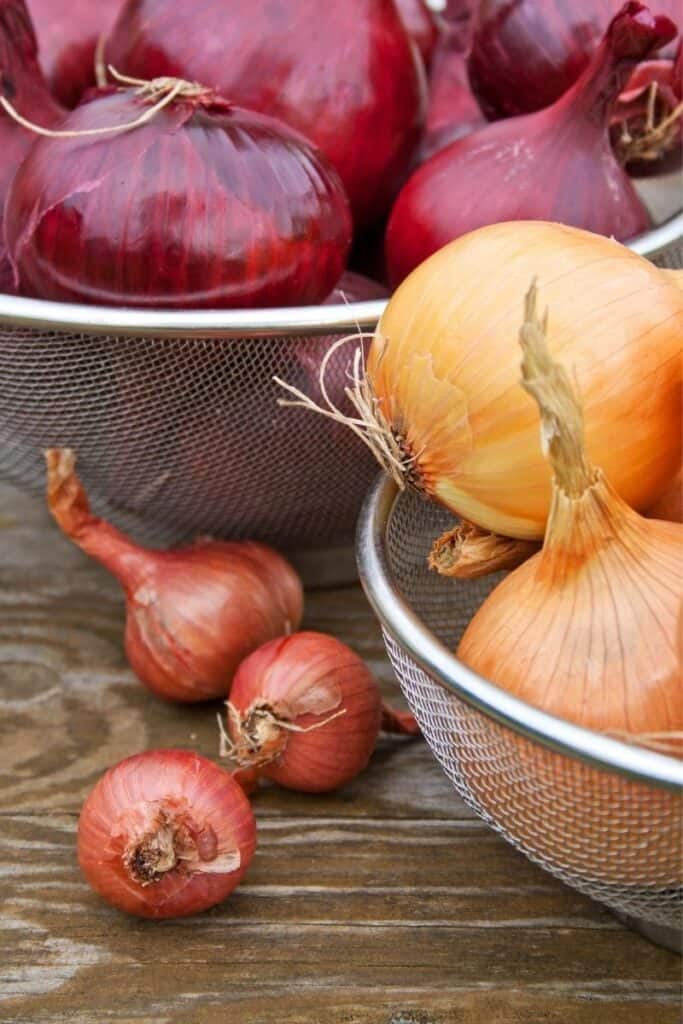
6. We are family!
There are hundreds of varieties of known onion plants worldwide, including cultivated and wild onions. Some of the most common are yellow, white, red, sweet, and pearl.
In the same family as onions are some of our other favorites in the kitchen: chives, garlic, leeks, scallions and shallots. If you’re making a soup or a sauce, it’s likely the onion family will be an integral part of it. Yum!
7. Tons upon tons of onions
The world produces over 106 million tons of onions each year! The largest onion producer in the world is China with 27 million tons (25% of the world’s supply).
Who eats the most onions? It’s the Libyans. They consume on average 68.8 pounds of onions each year. In comparison, the average American will eat 20.4 pounds of onions each year.
8. Why do onions make us cry?
Are you ready for a chemistry lesson? Pay attention now, this is one of the coolest fun facts about onions!
A chemical with a whopper of a name, Syn-Propanethial-S-oxide aka C3H6OS, is the culprit that creates the cascade of tears while chopping onions.
Sulfuric properties are released in a fine mist as the knife slices through. This mist reacts with the moisture in our eyes and we can’t help but cry about it!
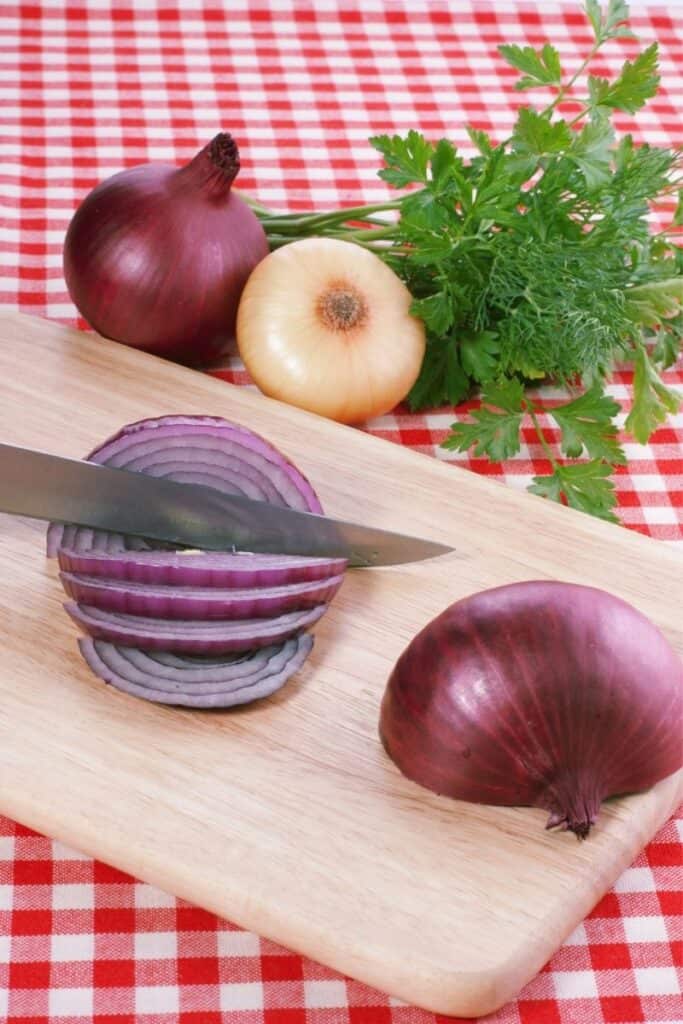
9. It’s the onions, I swear!
Enough with the science lesson! How do we stop the tears? One of the most common solutions is to wear goggles.
Other home remedies include: chewing gum, lighting a candle next to the onion, chopping the onion under a stream of cold water, or sticking a piece of bread in your mouth. Or just cry your little heart out. It feels good to cry sometimes.
10. Quirky onion world records
It’s the onion facts you’ve been waiting for! We know you’ve been wondering about onion world records.
What is the fastest time ever to eat a full-sized onion? This incredible distinction belongs to Yusuke Yamaguchi who gobbled one up in 29.56 seconds in 2013.
What is the largest onion ever grown? 18 pounds, 12 ounces. This was grown in the UK in 2014.
11. Onions are sexy!
Here are some of the most most interesting facts about onions. Did you know they are an aphrodisiac?
In Hindu texts on the art of making love onions are said to increase virility. During the Middle Ages priests weren’t allowed to eat onions in fear it would boost their libido. And in French tradition, newlyweds eat onion soup on the first day of their marriage!
Onions can indeed be sexy, just watch out for onion breath!
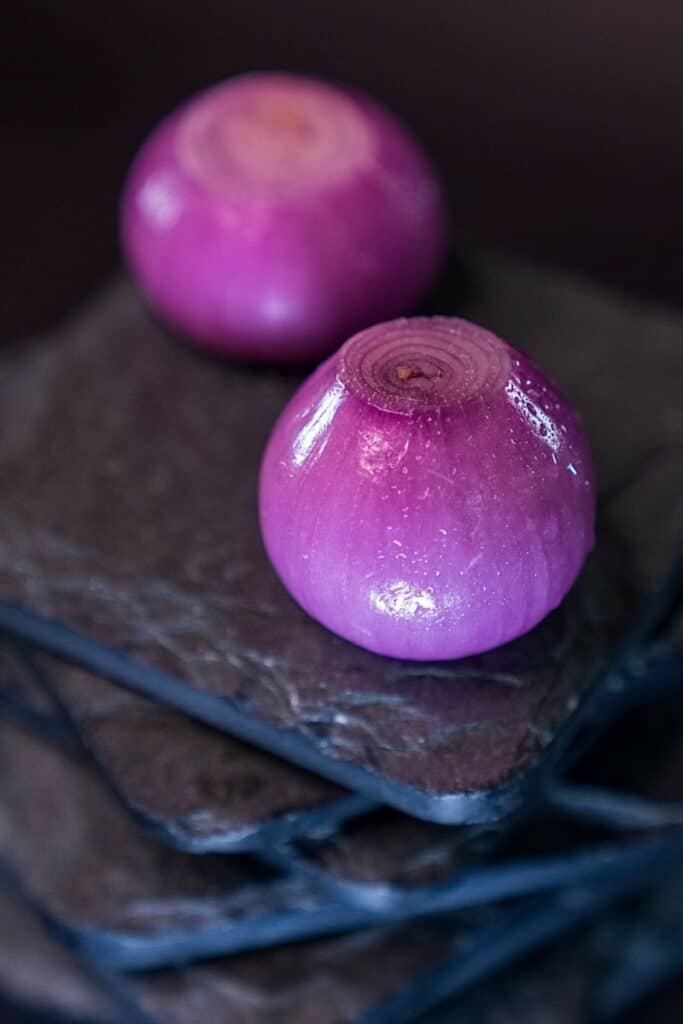
12. A cure for baldness?
The sulfuric properties in onions are at it again! It is proven that onion juice helps with thinning hair and hair loss. The sulfur facilitates the formation of keratin which creates strong healthy hair.
Some other onion trivia to help keep your mane shining? Onions are also a remedy for itchy scalp and dandruff. You might smell like a Greek salad, but you’ll have beautiful hair. Thanks onions!
13. Stick a fork in it
Forget expensive cleaning products. To remove rust spots off of silverware, stick your utensils in an onion. Leave in for a few hours and your metal will be shining as if brand new.
Another onion pro-tip: slice one in half and scrub clean the barbecue grill. Seriously, what can’t the onion do?
14. Predicting the weather
It is believed that the texture of onion skin can determine the severity of the coming winter. This old farmer’s rhyme has been passed down for centuries:
Onion skins very thin, mild winter coming in
Onion skins thick and tough, coming winter cold and rough
Time to impress everyone with your fortune telling! But make sure the onions are grown locally or you might be predicting the winter in China!
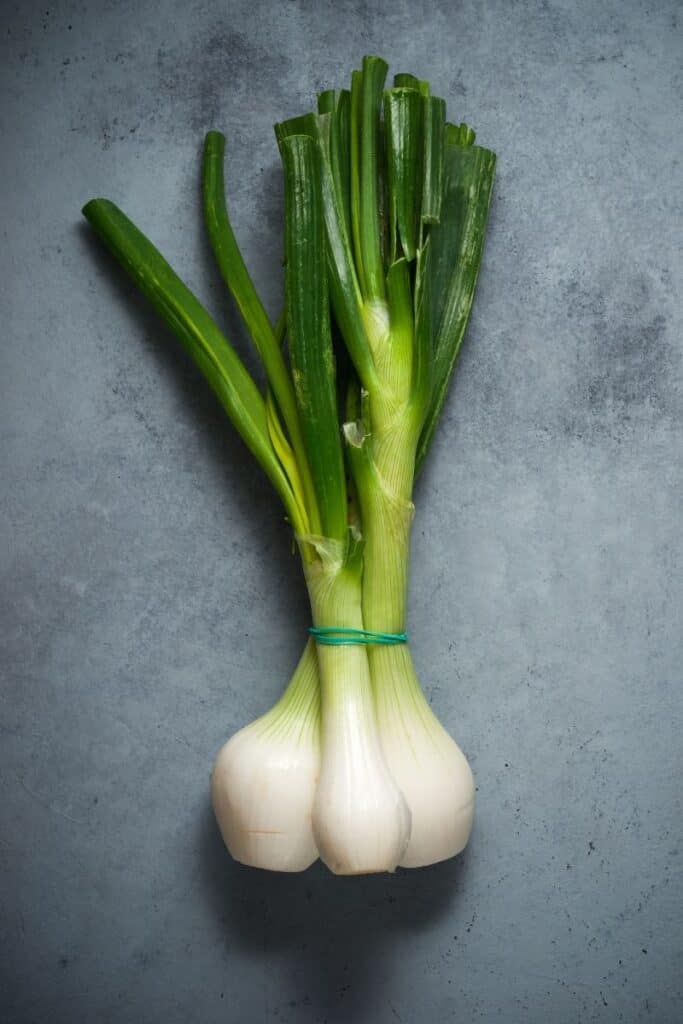
15. The dreaded onion breath
We’ve all had that stinky encounter. Talking to someone with onion breath. We try to be polite, but it’s torture! How do we get rid of onion breath? Common remedies include fresh parsley, green tea, lemons, and apples.
We suggest that on a first date you carry around a stalk of parsley in your pocket just in case!
16. We demand more onions!
General Ulysses S. Grant (before he became president) demanded more onions for his troops during the American Civil War.
He sent an urgent message to headquarters with the request. It was of utmost importance that his troops be fed well. The next day three full train cars arrived filled with onions, and the battalion proceeded forward.
Who wants more fun facts?

If you’re looking for some recommendations, these are a few of our favorite fact books to buy. We use these when planning fun trivia nights with family and friends!
Did you enjoy these fascinating fun facts about onions? Who knew there were so many layers to this humble vegetable?
If you have any other onion information, let us know in the comments below and we’ll add it to this article.

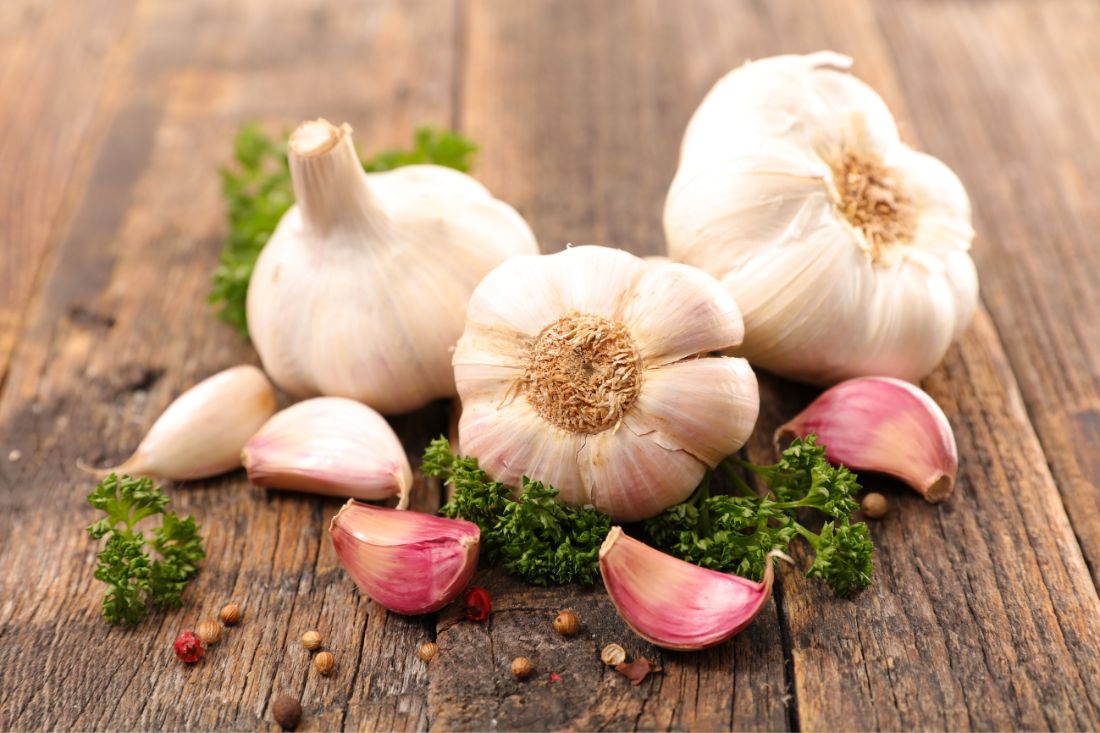
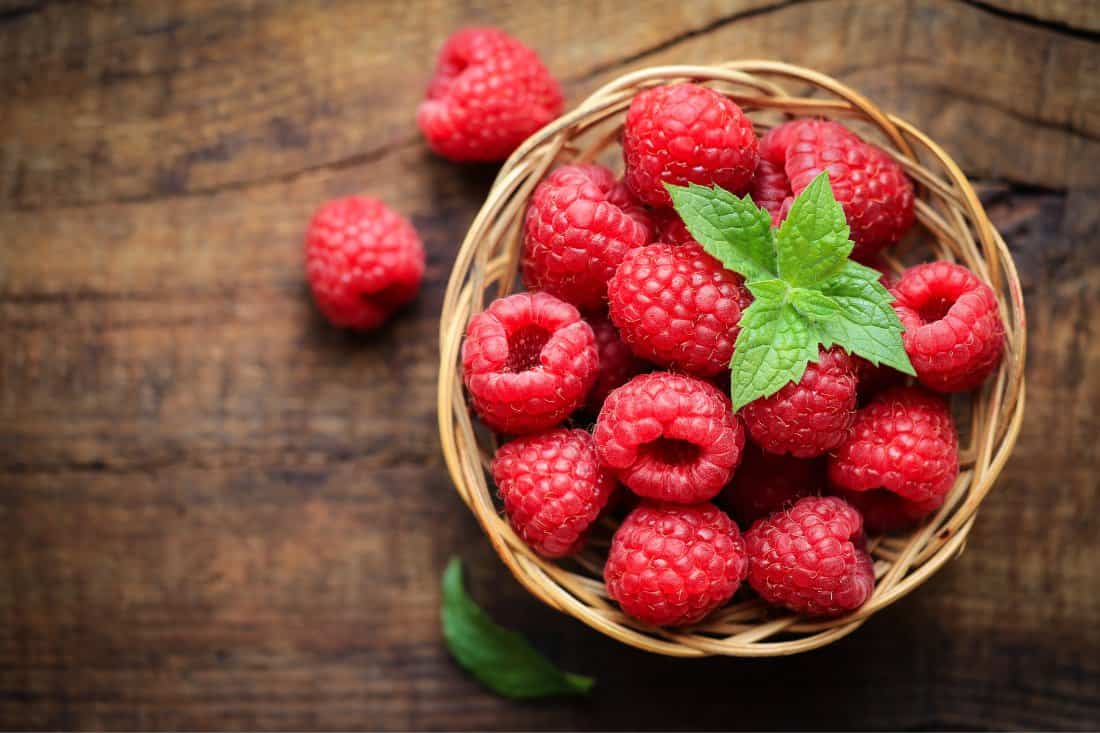
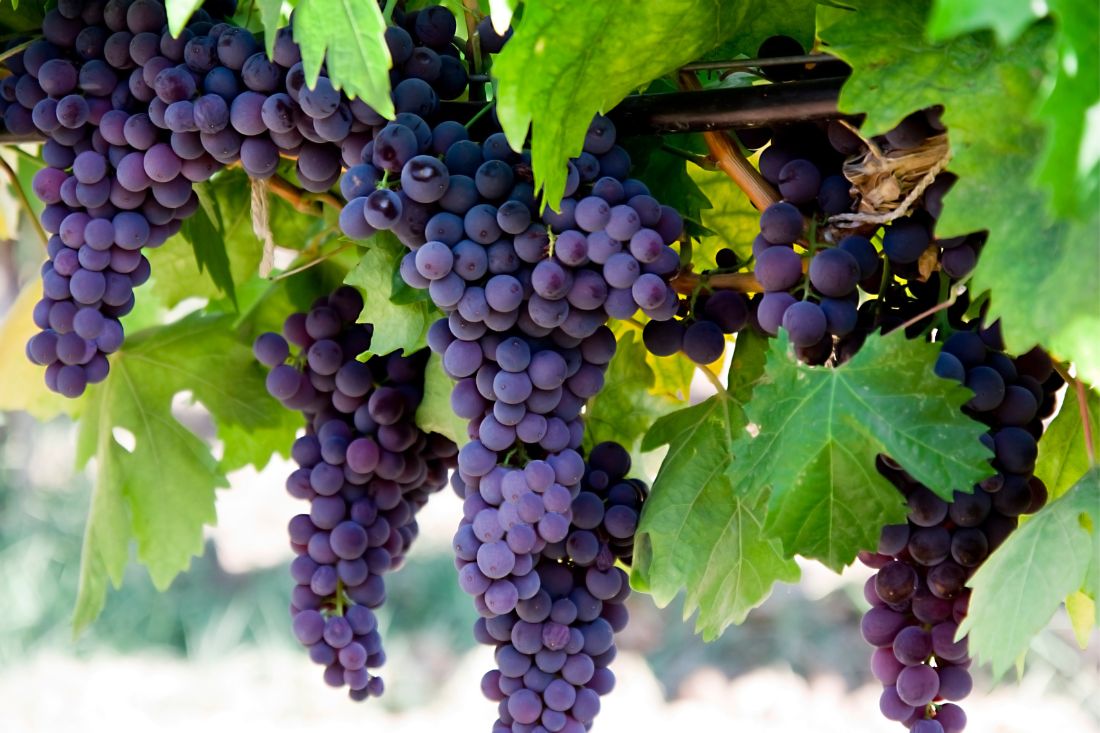
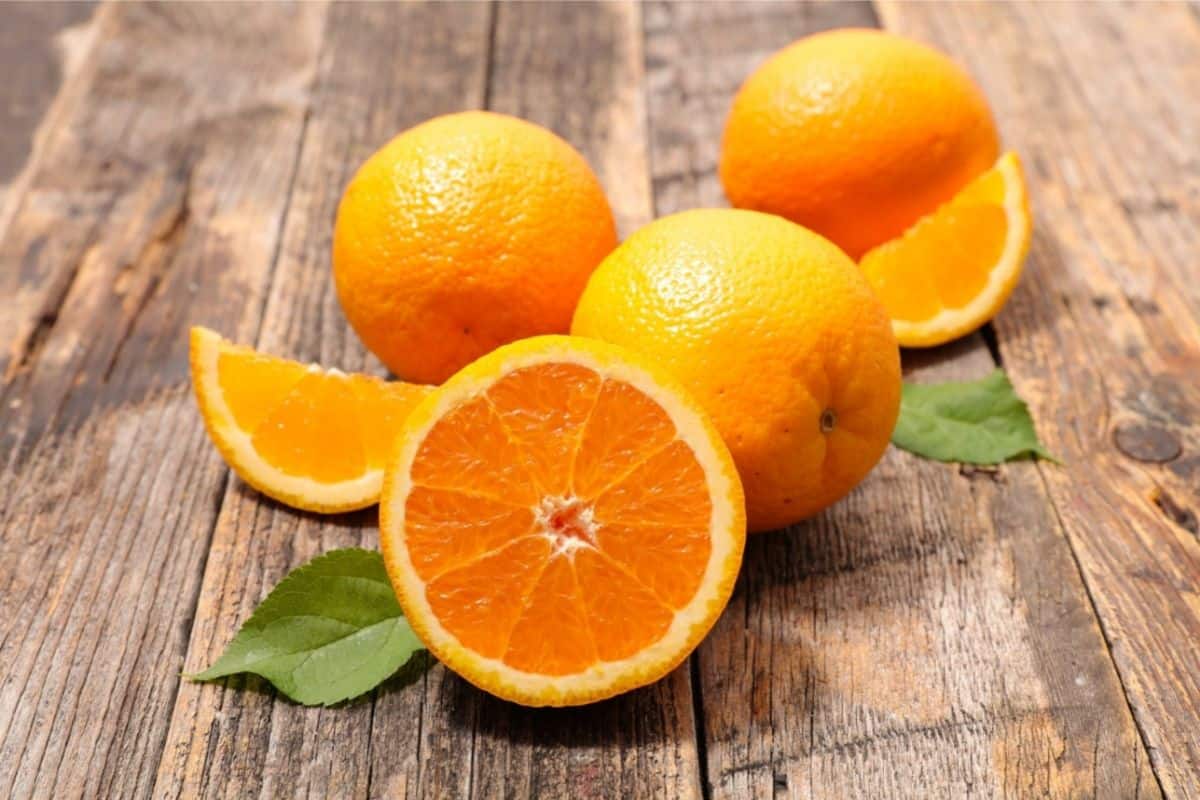
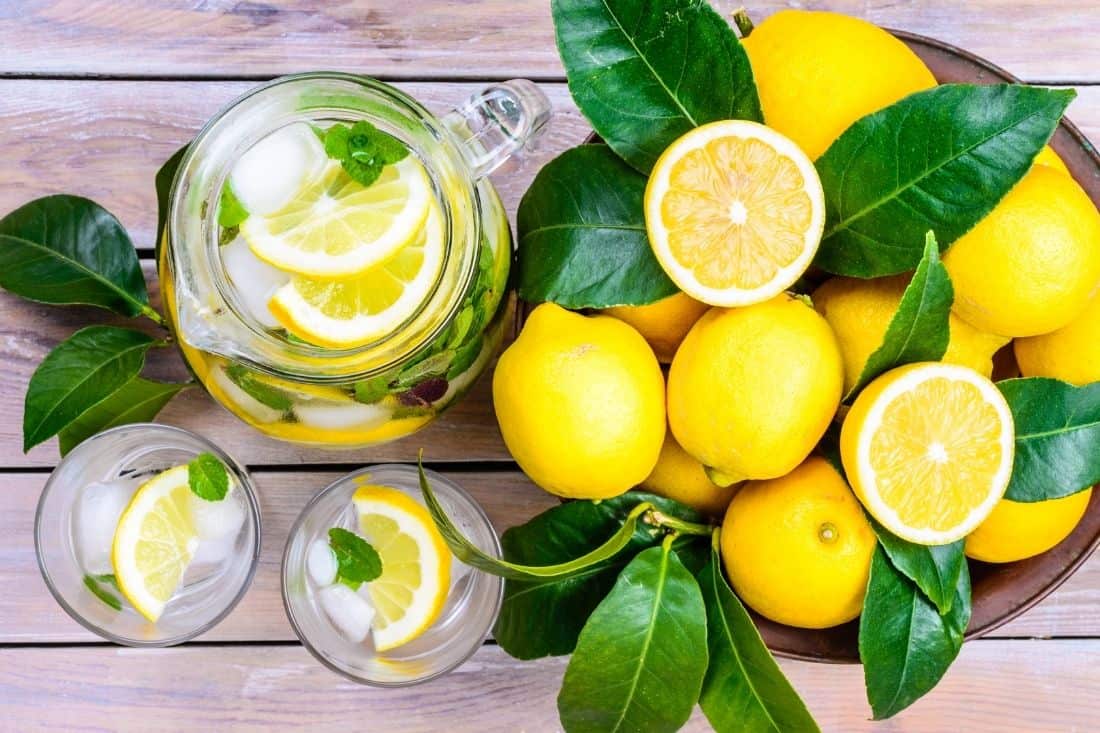

So nice to read with so much newborn respect for the onion / Allium cepa!
I am going to make a t-shirt with “I ♥ Onion” 🙂